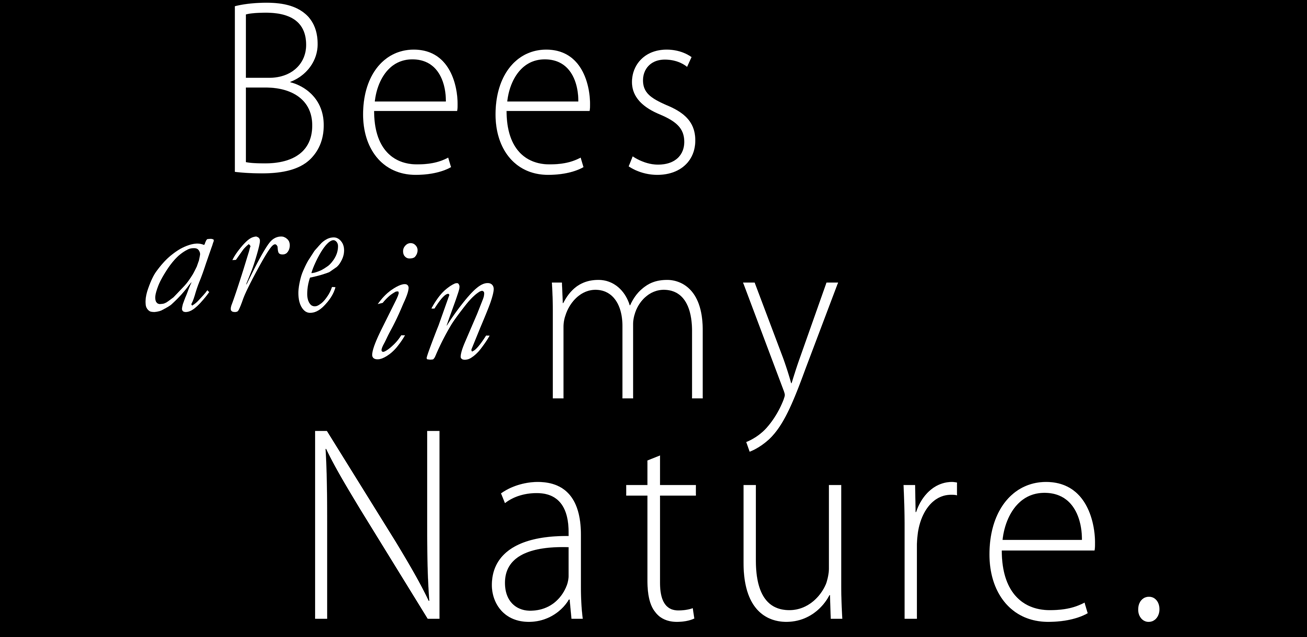

Let’s honour all bees for their role in the nature of things.
In going about their daily lives they provide plants with pollination necessary for reproduction and biodiversity and they provide food for many species from ants to insects to birds. Social bees can be managed to provide pollination necessary for agricultural crops and a variety of foods for human consumption.
Let’s honour also the beekeepers across this Global Village who ensure that there are bees available to pollinate our crops and that the products of their hives are in abundant supply for us to enjoy and use for our good health.
Over thousands of years, bees and humans have evolved a reciprocal relationship. Beekeepers have developed management strategies which enhance the bees’ lifestyle in return for the bounty that bees provide for the well-being of the human race.
Observation, not expectation.
Beekeeping is based on respect for the bees. So they must be approached with a mood of observation and nurture rather than one of expectation and exploitation. Success comes from knowledge and understanding of the life of bees and their needs.
As bees are responsive to environmental influences, it is important to gain knowledge of the local seasons, weather and flora.
Tune in to your bees.
Observe the condition of your hives and manage them accordingly. Develop your own management strategies based on knowledge and experience.

The keeping of bees is an attitude to life.
We may own the hive
but only manage the bees.
The benefits of the arrangement
are received with gratitude
and reciprocated with sacrifice
of time and energy.
Role of Bees.
All bees have a vital role in the well-being of the environment. They must be honoured and nurtured.
Besides, they add a little poetry to our lives. The garden and orchard would never be the same without the friendly hum of bees.
Consider the role of bees in the World Wide Web of life.
Bees in their daily lives utilize and serve many elements of this web. To do this sustainably bees need a balanced source of food and suitable habitat. If these two elements are missing or out of balance the colonies of bees will be unable to maintain the strengths and vitality to withstand pests, diseases and climatic conditions.
We need the balanced conditions existing in diverse native forests to maintain strong hives suitable for pollinating. Keepers of both honey bees and native bees need to access areas of honey flora to build their resources of strong hives.
Hi’ve got Bees…
It ain’t all about the hive.
Many ‘natural’ bee discussions are initiated with the hive design. Hives are certainly important, but they’re not the bee-all in the Nature Of Beekeeping.
From Hilary Kearney, founder of Urban Beekeeping in San Diego, California. “It is my opinion that it does not matter what shape box you put your bees in. What matters is how you treat them and the decisions you make as a beekeeper. That’s what makes you a natural beekeeper.”
Your needs, your environment, your time-schedule, your level of commitment, philosophy, flexibility, are all important factors.
As are your expectations: when buying, selling, swapping, borrowing, giving and sharing. Is the honey for yourself, your friends and family, the markets, commercial? Are you value-adding, or producing wax, providing nucs or a pollination service? Your gentleness, respect and care. Your time. And of course your bank balance.
Or you simply have a distant admiration of bees and want to support their well-being. It all counts, beautifully.
The role of bees needs to fit into your own Nature. Establish your Nature first, a hive design will then fit into place. There are a number of types, options abound, they can all be good, some are not so suitable: find the one that Fits Your Nature.
Bees Are In My Nature. Way to go!
CLICK HERE for a Bountiful Bo-Peep at the various hive designs, styles and techniques
